Past Highlights
The Fraser Basin Council works collaboratively on a wide variety of community sustainability programs. Here are highlights from past years.
Co-Creating a Sustainable BC — 2022-2023
Since 2019, Co-Creating a Sustainable BC (CCSBC) has supported BC youth to deepen their understanding of the social, economic and environmental aspects of sustainability. Youth take what they’ve learned to design and implement projects that will have a direct and positive impact in their own communities.
Youth Take the Lead!
Below is a snapshot of 2022-2023 projects
Find 2023-2024 youth cohort projects in Youth Program, Co-Creating a Sustainable BC
Visit the FBC Youth Program website for full info on CCSBC and other endeavours
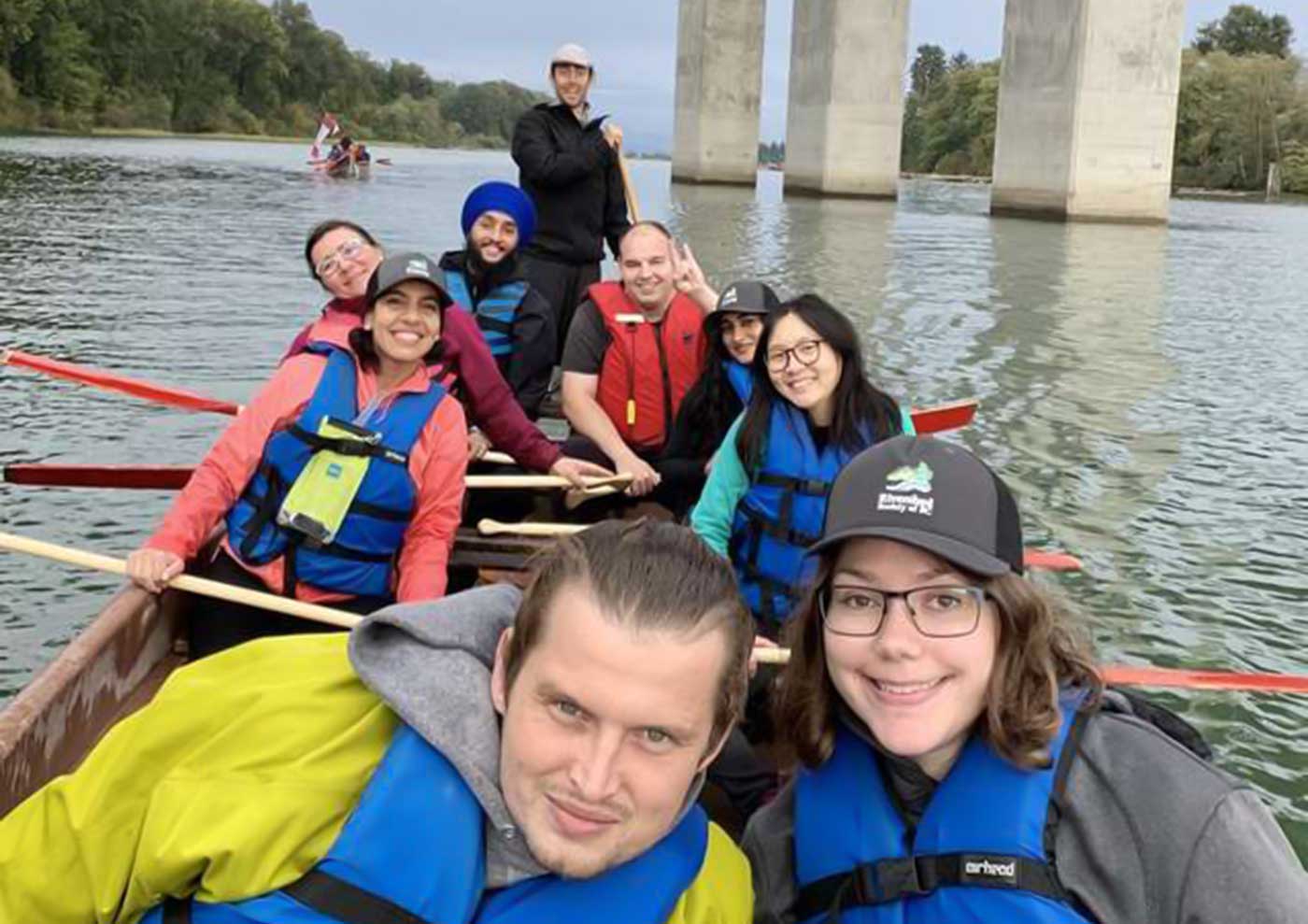
The CCSBC Fraser Valley cohort celebrated 2023 world River's Day with a paddle from Glen Valley Regional Park in Abbotsford to Coquitlam's Maquabeak Park. Special thanks to the Rivershed Society of BC and Voyageur Adventures. A time of fun, learning and team bonding!
A youth cohort in the Fraser Valley hosted a community event in Abbotsford in March 2023 called “Living Food-Stainably” to help young families in the Fraser Valley learn about local food systems and opportunities. Some 100 people attended for hands-on demonstrations and to access materials and supplies on such topics as worm composting, canning, food preservation techniques and growing garden vegetables. Community partners also supported the event by hosting workshops on growing sprouts, foraging and traditional Indigenous food practices. See some video highlights!
In East Kootenay a CCSBC partnership was struck with Wildsight Kimberley-Cranbrook to engage outdoor education students at Mount Baker Secondary School. The students helped plan and execute a community event that brought the community together to carry out restoration activities with invasive plant removals, to raise public awareness of the benefits of caring for natural areas, and to make the park a more inviting space in the eyes of Cranbrook residents.
In June 2023 over 100 people turned out to this collaborative community event.
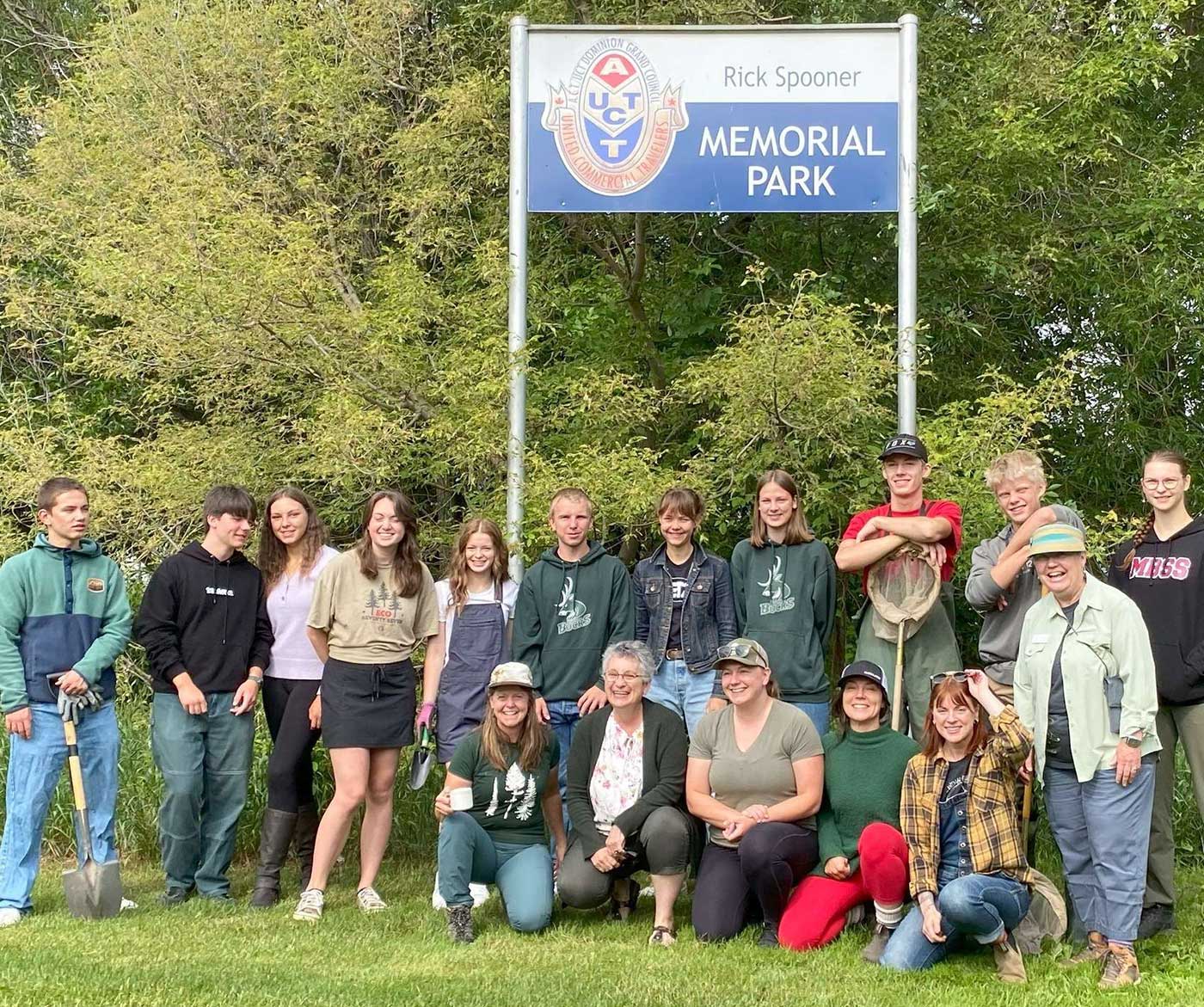
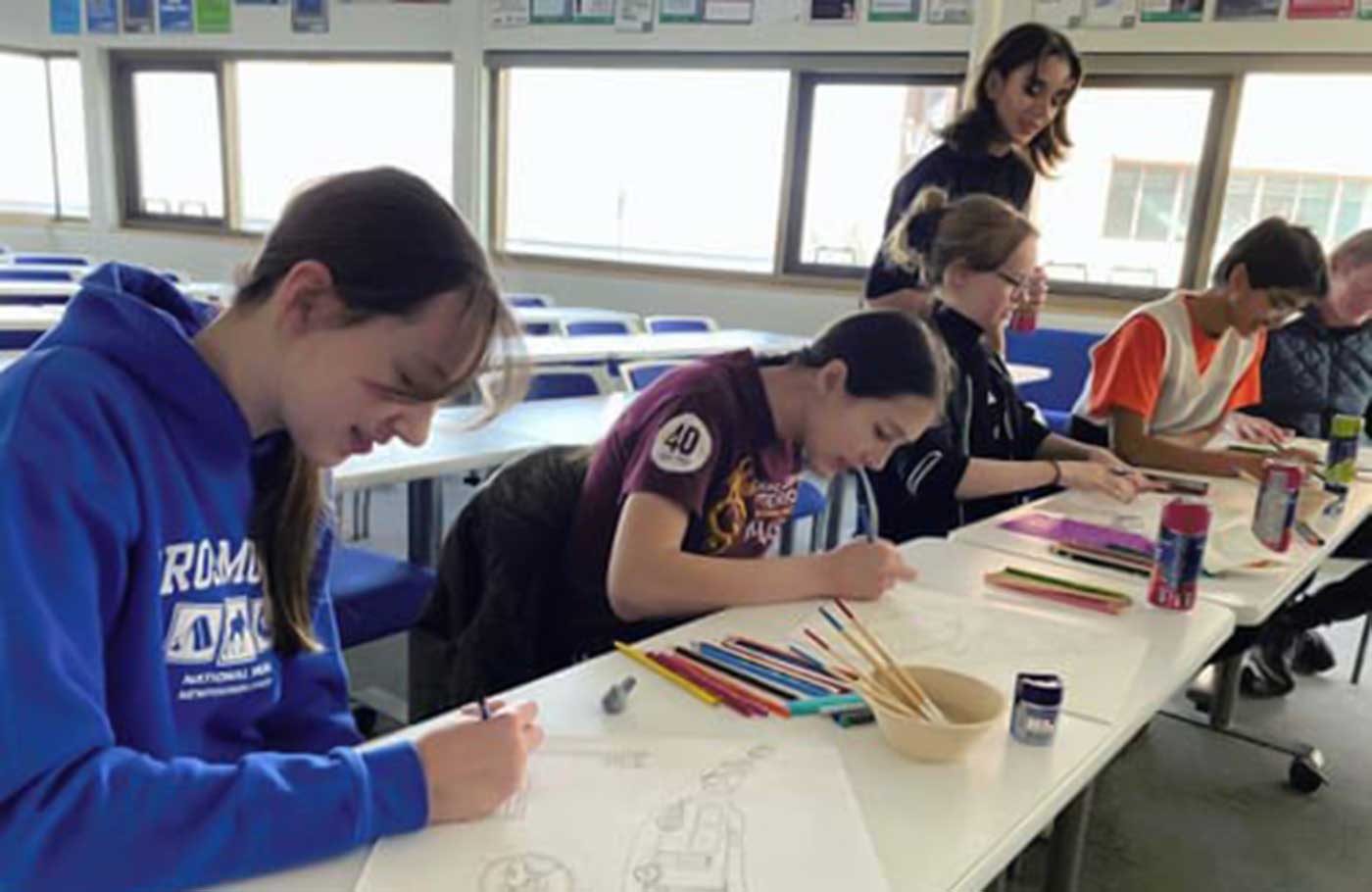
The Thompson youth cohort centred their efforts on transportation in Kamloops. They led a survey and hosted an interactive culture mapping workshop with local high school students. Workshop participants used art supplies to prepare a visual representation and a brief verbal summary of their experiences of —and their ideas for — moving around the city. They compiled the art pieces and discussion notes to share with decision makers within the community, and they hope to inspire more discussions and engagement with other youth.
The North-Central BC cohort explored ways to promote the benefits of cycling as a form of transit in the city of Prince George. They gathered data on the opinions and needs of Prince George residents related to the concept of a bike-share program through the development, dissemination and promotion of a survey. The work included a feasibility study on the implementation of a bike share program, which they plan to present to City Council. The cohort also developed an infographic on bike safety and accessibility in Prince George.
Going forward, they plan to apply for additional grants and to continue building their partnerships with local universities and colleges in the hopes of establishing a bike share program for students that would serve as a pilot for city-wide implementation
The Vancouver Urban Core (VUC) youth group engaged BIPOC youth in considering the role of art in creating more sustainable and inclusive communities. The VUC cohort project idea was to start conversations about food and its potential as a tool to connect us and to think about the role food plays in our lives and how it can create opportunities for inclusion. As part of their CCSBC project, youth built and decorated a sound box to engage community members to collect and record stories of their experiences when/how they used food to connect with others in the community. Beyond the project, youth planned to create a mural based on the data they collect and organize an event to demonstrate the power of food and art to create social inclusion and strengthen community bonds.
In partnership with the Helping Spirit Lodge Society, the FBC Youth Program team supported a cohort focused on youth who had lived in shelters, or had experienced other hardship, to connect with the traditions and teachings of Indigenous cultures. Participants gained self-confidence and skills based on traditional practices. They then organized their own workshops to pass on the skills and support women from the shelter community by sharing what they learned.
Youth from the Cowichan Valley cohort were concerned about access to bathrooms and water for both drinking and hygiene. Their project focused on mapping publicly available washrooms and water fountains in the region. The youth worked together to create the map using data points gathered by their work on the ground and through outreach to the Municipality of North Cowichan and the City of Duncan. Their map was made accessible through an interactive online mapping website and a printed poster displayed around the central Duncan area.
Stickers with QR codes were also distributed and displayed around the region for quick access to the online map. The youth hope that this resource is helpful to those trying to find freely available water and as a tool to showcase local gaps in available water, for future planning purposes.
Other Past Highlights
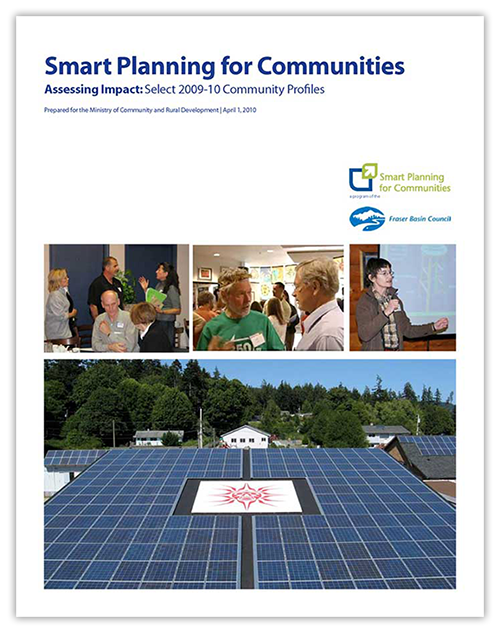 The Smart Planning for Communities (SPC) program, managed by FBC, offered advice and support to over 100 BC communities, thanks to a team of dedicated sustainability facilitators. It was gratifying to support communities, large and small, in their quest to create more sustainable ways for people to live, work and play.
The Smart Planning for Communities (SPC) program, managed by FBC, offered advice and support to over 100 BC communities, thanks to a team of dedicated sustainability facilitators. It was gratifying to support communities, large and small, in their quest to create more sustainable ways for people to live, work and play.
The program (2008-2016) helped BC communities understand and undertake integrated community sustainability planning in a manner consistent with each community’s vision for the future and taking into account social, economic and environmental considerations.
With financial support from a number of partners, including the Real Estate Foundation of BC, SPC offered education, resources and advice to local and First Nations governments, particularly in rural communities, to help them carry out community sustainability planning. Communities fulfilled their undertakings in various ways, some through stand-alone sustainability plans and others through Official Community Plans, asset management plans, climate change action plans or policy statements.
An important outcome of the program was strengthening connections and relationships between local governments, and between local and First Nations governments.
To learn more, see Assessing Impact: Select 2009-2010 Community Profiles and the 2016 wrap-up report on implementation of community sustainability plans, including what participating communities saw as pivotal to success: Implementation of Community Sustainability Plans by BC’s Local Governments.
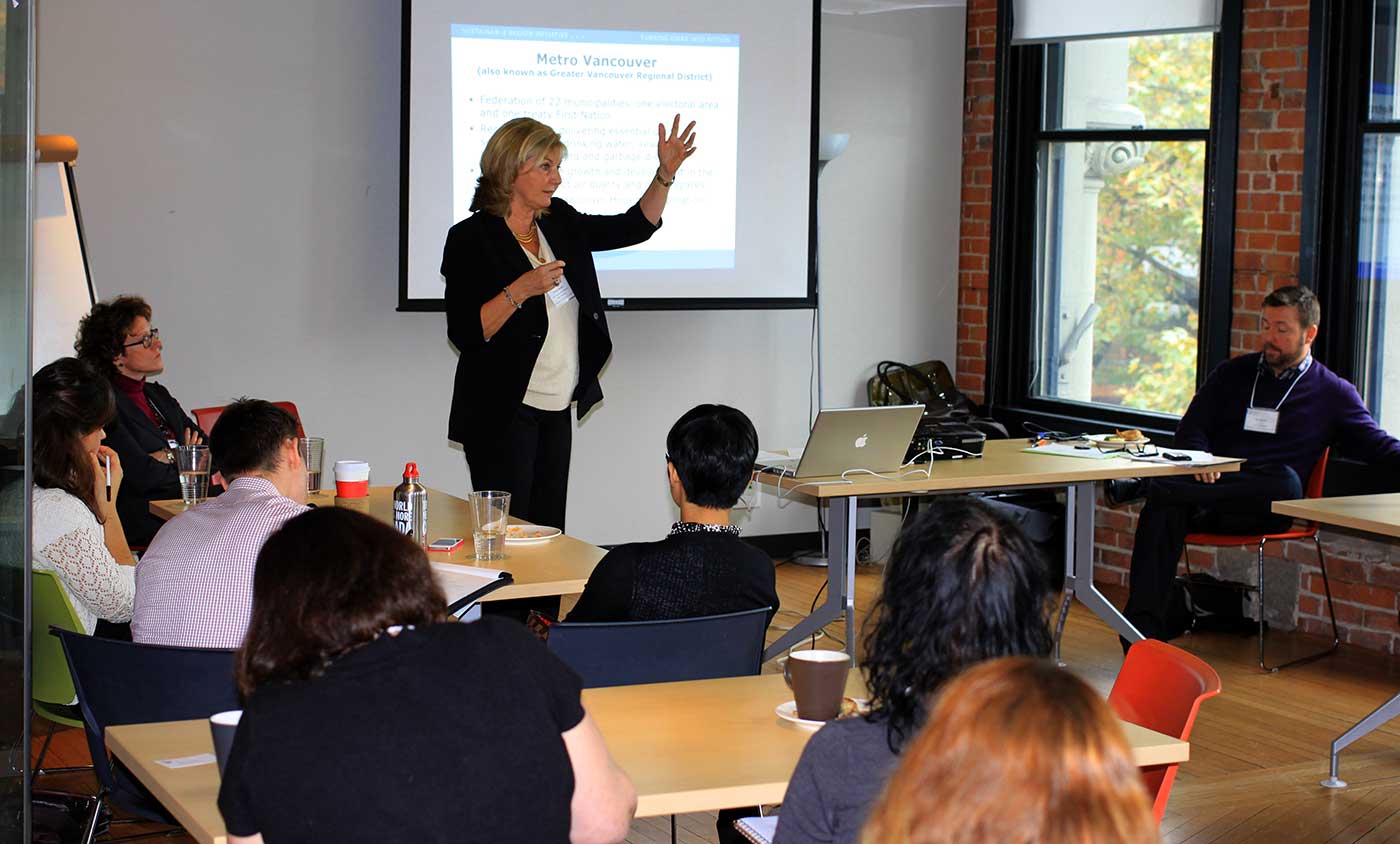
Hosted by FBC, the BuySmart Network (originally the Sustainability Purchasing Network) was a multi-year initiative to support people in business, government and non-profit organizations who wanted to learn and share best practices on sustainable purchasing and supply chain management.
Through learning events that showcased best practices, BuySmart helped public and private sector organizations learn about and develop purchasing strategies that reflect their own commitments to corporate social responsibility.
The BC Rural Network was a multi-year collaborative program hosted by the Fraser Basin Council through the Cariboo-Chilcotin team. The Network worked to build stronger rural and remote communities across the province and promote a better understanding of rural issues by:
- disseminating information, tools and resources of importance to rural and remote communities in BC
- creating links between communities, rural organizations and policy makers that work on issues of importance to rural and remote communities
- providing a forum for rural and remote communities and organizations to voice concerns and issues, and to learn from each other.
Thanks to all the communities that participated in the Network over the years.
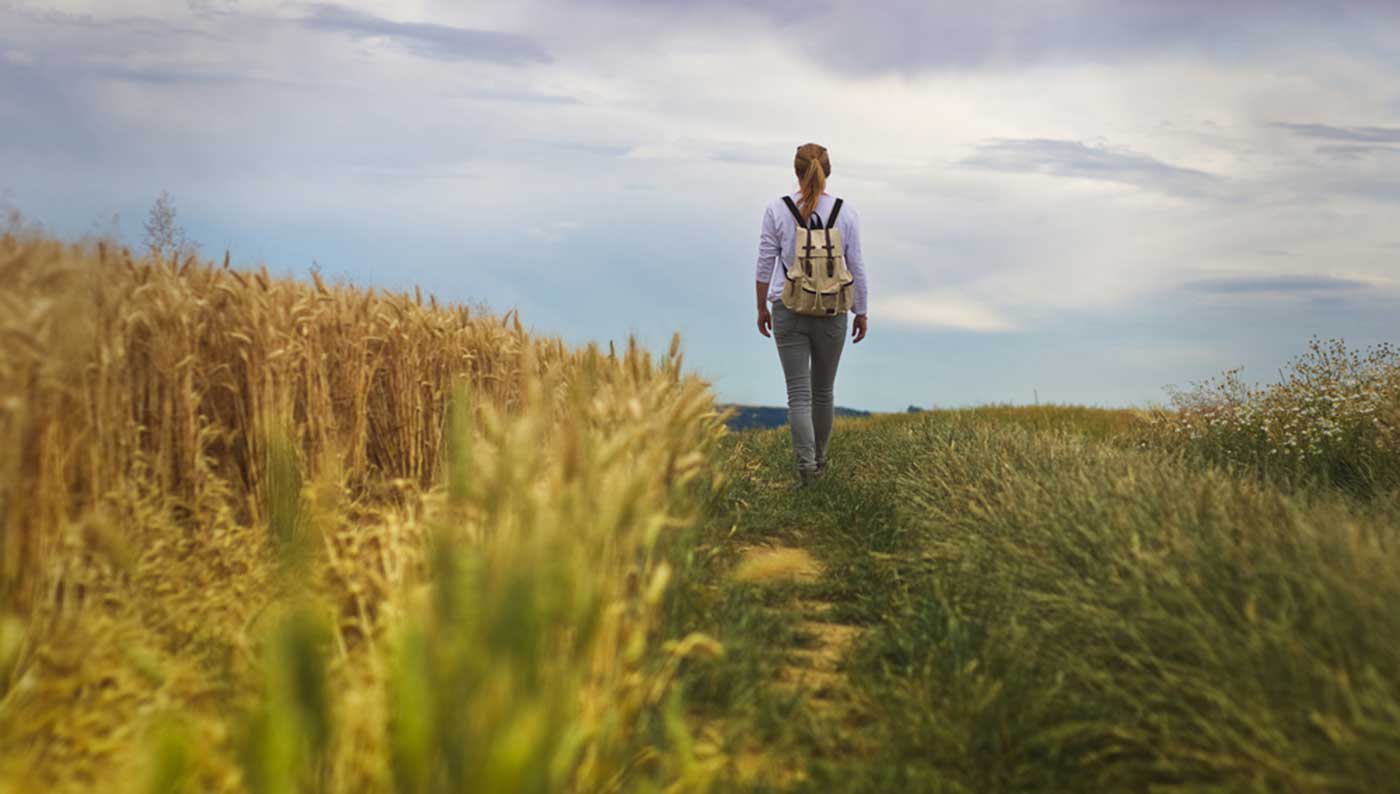
Project Comeback was a two-year (2012-2014) project in BC rural communities that was aimed at better understanding and meeting the needs of young people. Many rural communities have struggled with the twin demographic trends of youth out-migration and an aging baby boomer population. The trend triggered concerns, including the prospect that some local businesses would close without young people to take them over.
Through Project Comeback, five communities (Smithers, Williams Lake, Chase, Kaslo and the Regional District of Mt. Waddington) reached out to youth through surveys, interviews and workshops. They wanted to learn about the “push and pull” factors that influence local youth when deciding to stay in, leave or return to their home communities. This research helped inform pilot projects designed to help attract, engage and retain youth.
Youth surveyed said they valued “a sense of community,” social activities and events, as well as opportunities for employment, training, recreation, access to health services and quality of life. Read about their views in Project Comeback: Creating vibrant rural communities by retaining and attracting a young adult population.
The BC Rural Network managed the project, with support from the Fraser Basin Council and federal-provincial funding.
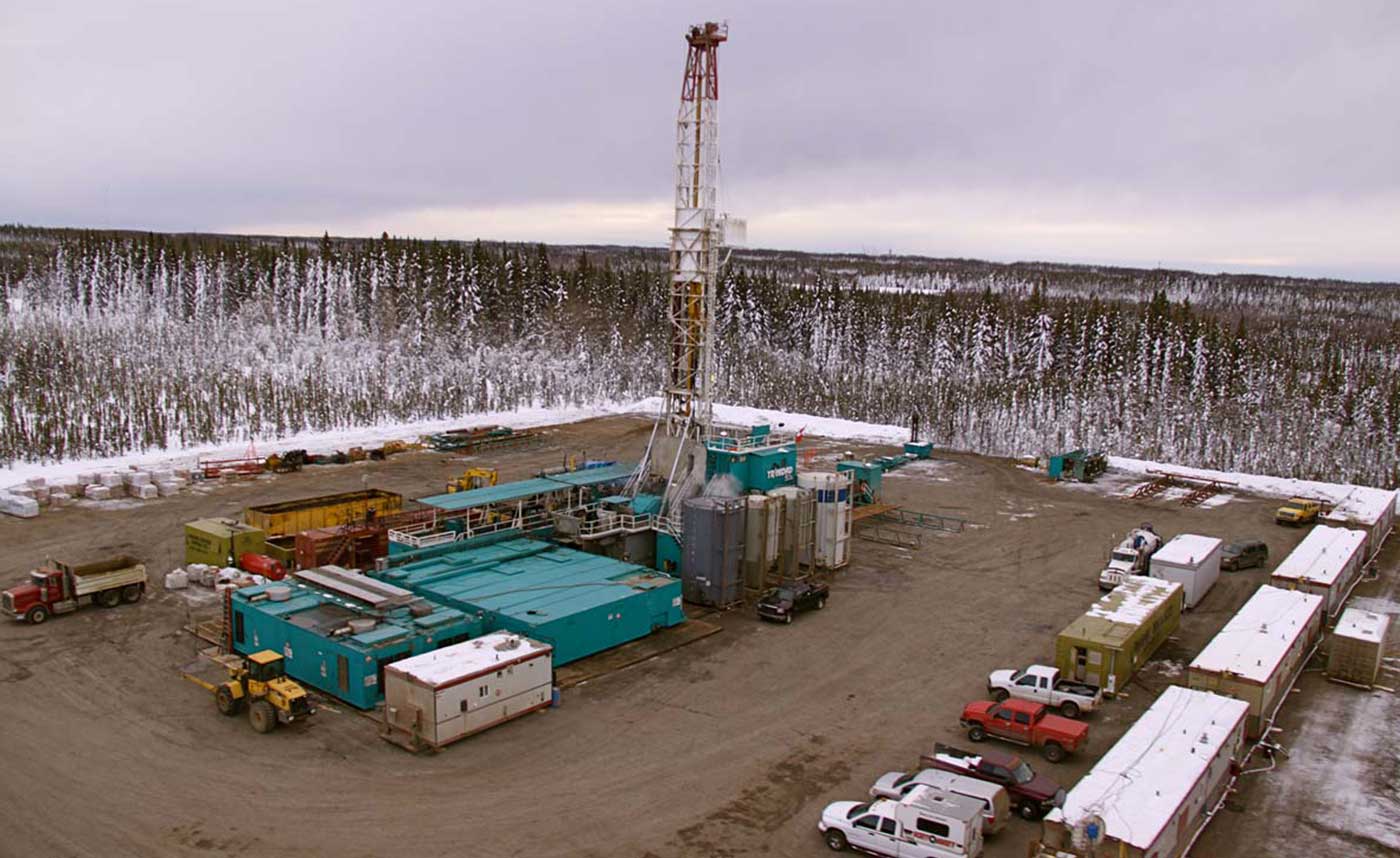
The Human Health Risk Assessment was a three-phase provincial project to identify, explore and assess concerns about human health relating to oil and gas development in Northeastern British Columbia.
The full risk assessment consists of three phases: 1) a public engagement to identify health concerns, 2) a human health risk assessment based on findings from Phase 1 and 3) a report to the Province, stakeholders and the public.
The Fraser Basin Council carried out Phase 1 of the human health risk assessment and, following engagement, brought forward health concerns from the public about oil and gas development. The work is reflected in the 2012 report Phase 1 of Human Health Risk Assessment: Identifying Health Concerns Relating to Oil and Gas Development in Northeastern BC. The report and a compendium are also available on the BC Ministry of Health website.
Sustainability indicators are select data that help reflect social, economic and environmental health and that are tracked over time with a view to ascertaining trends and the state of sustainability.
The Fraser Basin Council began an indicators program in 2000, with a primary emphasis on sustainability of the Fraser Basin.
The goals were:
- increase public awareness and understanding about sustainability
- identify critical issues and responses to improve progress
- inform decisions and influence actions
- advance sustainability.
Between 2003 and 2011 FBC published a series of Sustainability Snapshot indicators reports on social, economic and environmental indicators for the Fraser Basin as a whole as well as reports for specific Basin Communities. Areas of focus included Aboriginal/Non-Aboriginal Relations, Climate Change, Air Quality, Agriculture, Energy, Education, and more. Each report was supplemented by case examples and opportunities for action.
The reports were featured at State of Fraser Basin Conferences hosted by the Fraser Basin Council in Vancouver in 2003, 2006 and 2009 and lessons learned from all reports summarized in 2011.
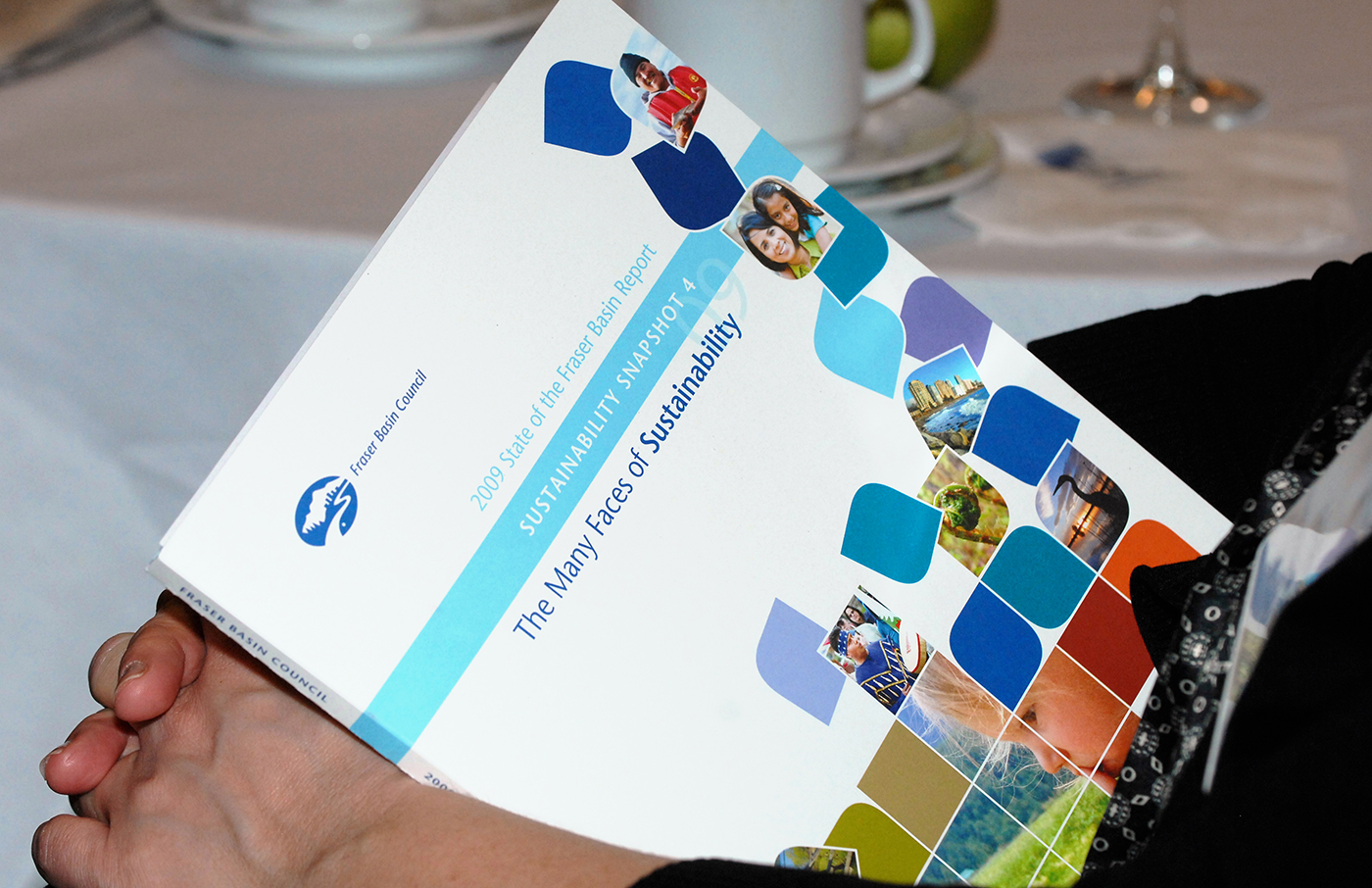
Here are the reports:
- Measuring & Reporting on Sustainability: A report on Lessons Learned (2011)
- Sustainability Snapshot 2010: Living and Working in the Lower Mainland
(Metro Vancouver, Fraser Valley, Squamish-Lillooet) - Sustainability Snapshot 4: The Many Faces of Sustainability
(Basin-wide: 2009) - Sustainability Snapshot: A Picture of our Region
(Upper Fraser: 2008) - Sustainability Snapshot 3: Inspiring Action
(Basin-wide: 2006) - Sustainability Snapshot 2
(Basin-wide: 2004) - Sustainability Snapshot
(Basin-wide: 2003)



